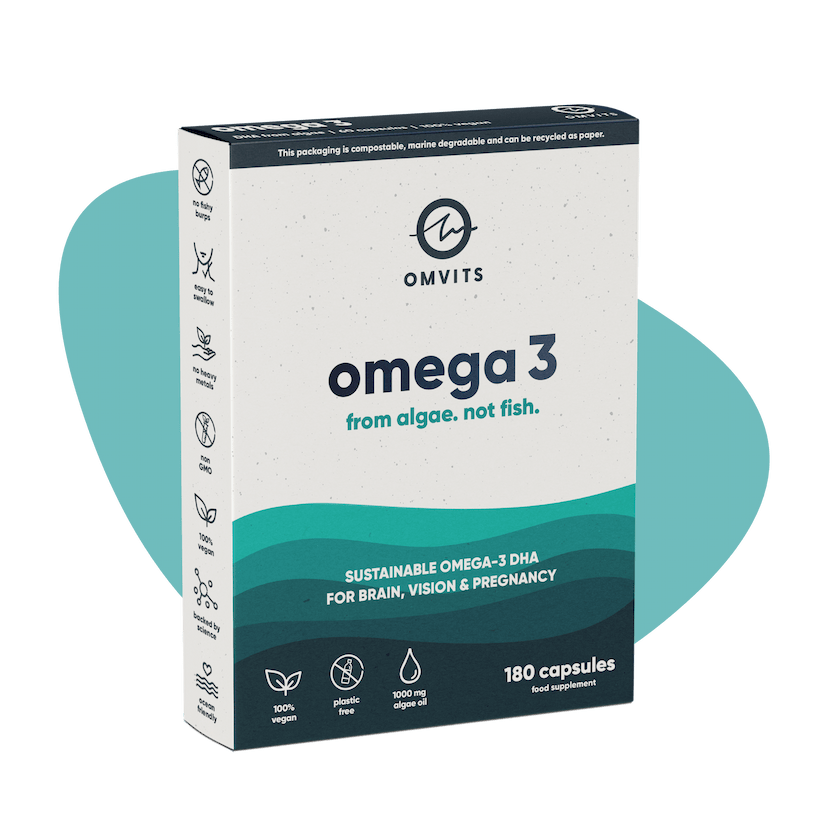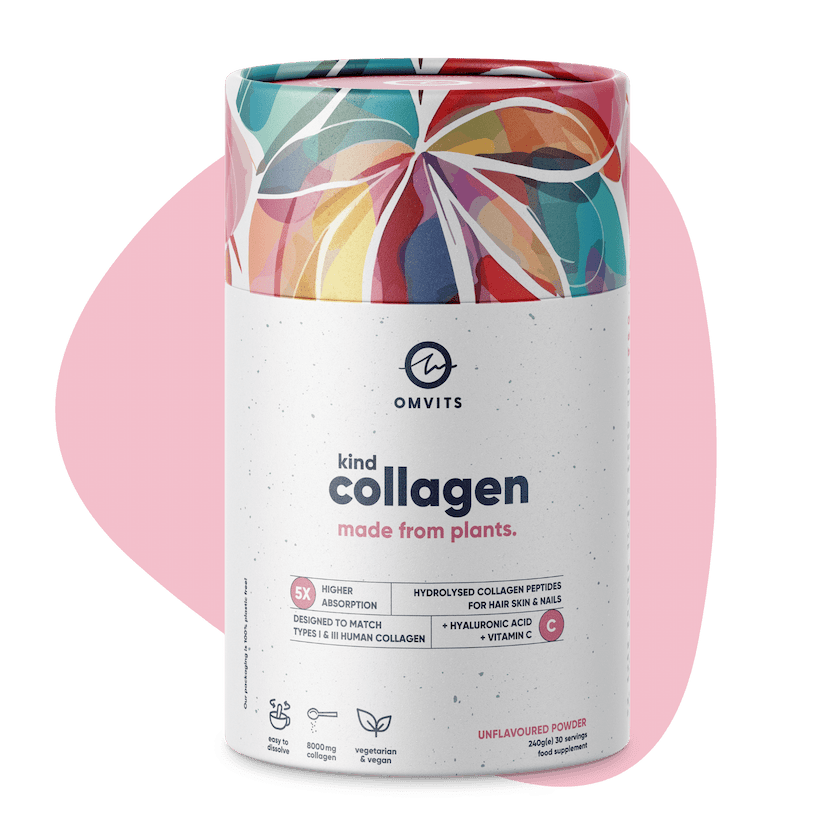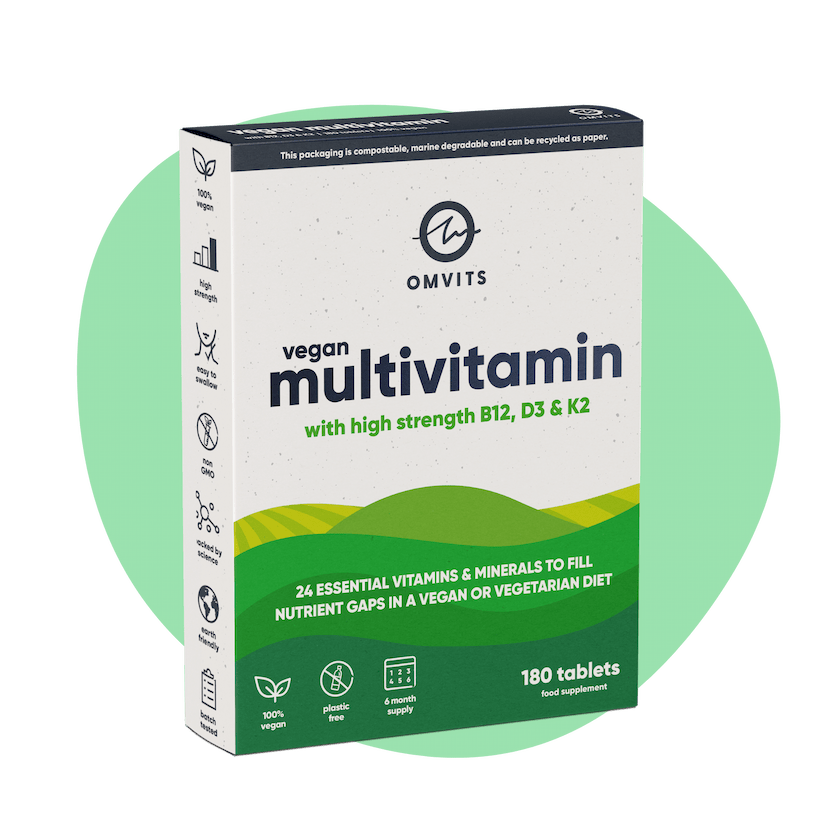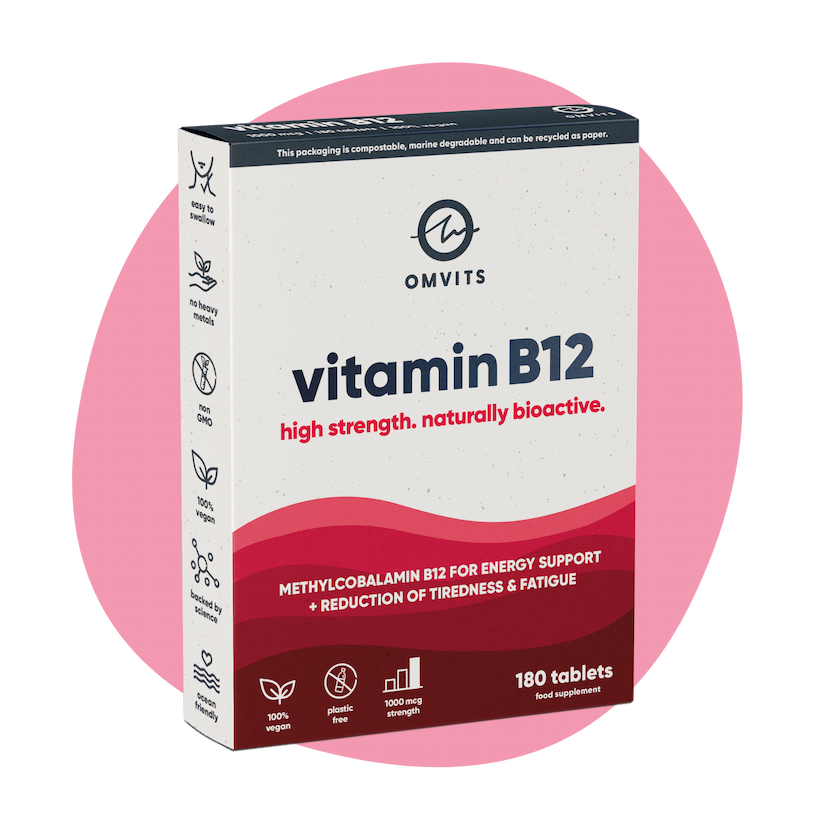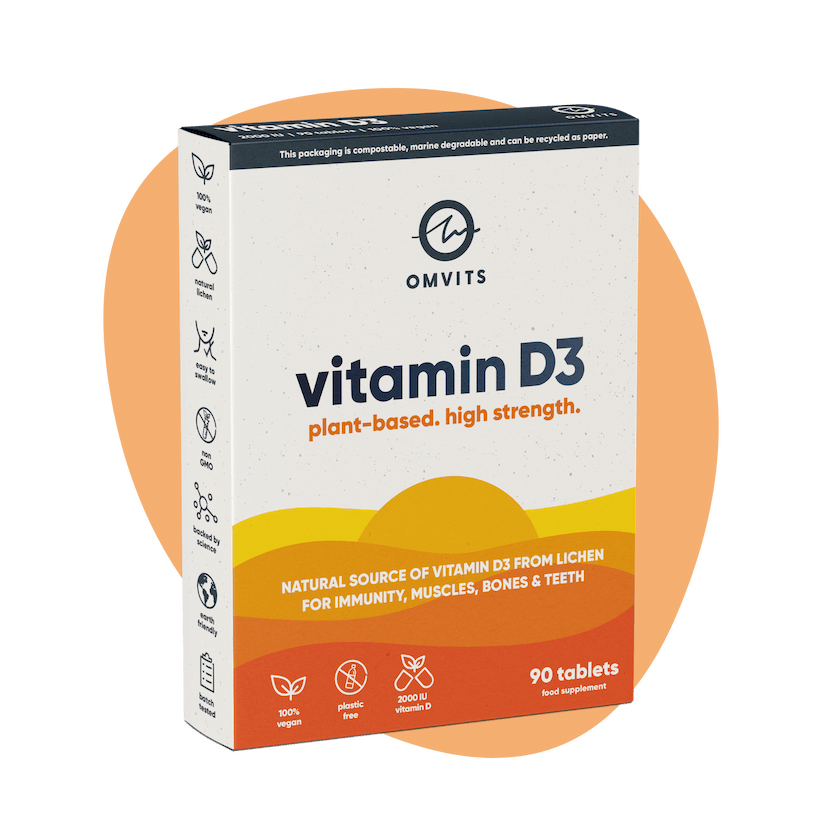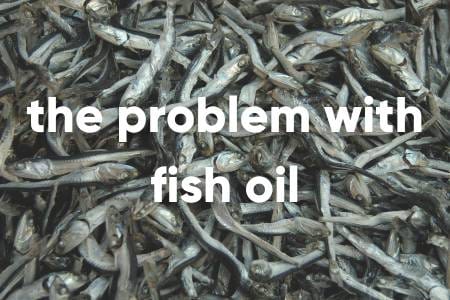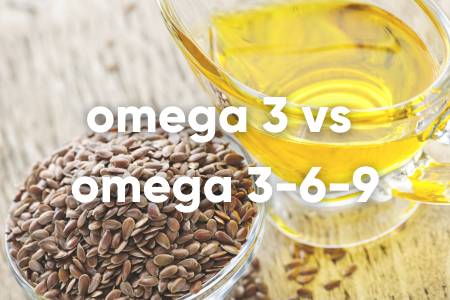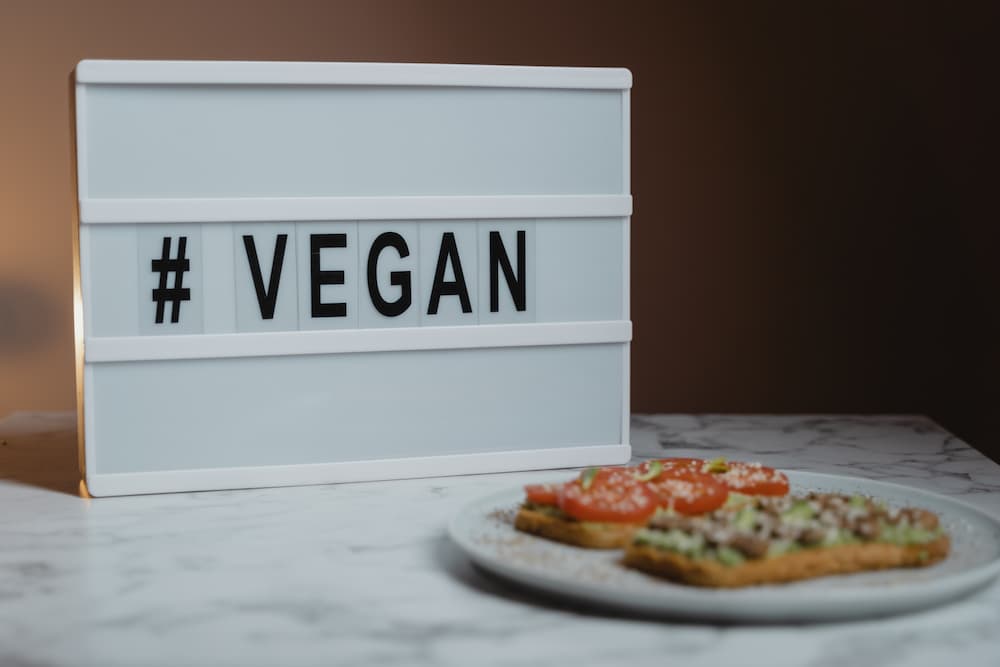FREE UK Delivery £25+
FREE UK Delivery £25+
Blog
about us
account
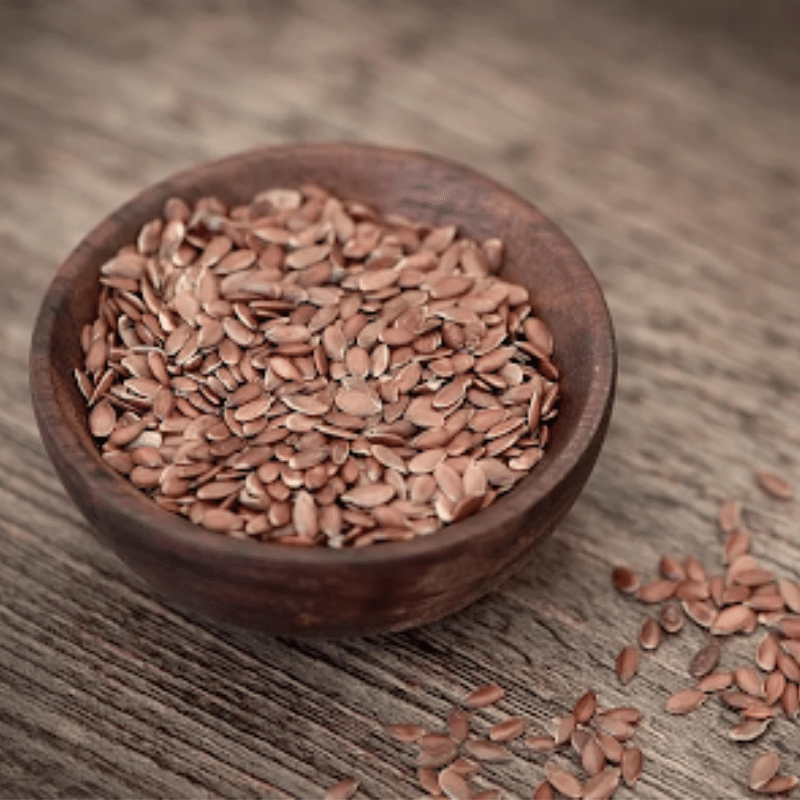
The 6 Best Vegan Foods Full Of Omega-3
February 15, 2021 6 min read
Omega-3 is an essential fatty acid that has a wide array of benefits for our health. It plays a broad role in a range of brain and body functions, but vegans or vegetarians may struggle to get enough Omega-3 fatty acids as the main source of it is fish oil. What are your options for Omega-rich foods? Read on to find out.

https://pixabay.com/ro/photos/omega3-capsule-de-ulei-de-pe%C8%99te-5128898/
What Are Omega-3 Fatty Acids?
Omega-3s are a family of essential fatty acids that play vital roles in your body, whilst providing a number of health benefits. We call them ‘essential’ because your body is unable to produce them on its own, so you must get them from your diet. (1)
The three most important Omega-3 fatty acids are ALA (alpha-linolenic acid), DHA (docosahexaenoic acid), and EPA (eicosapentaenoic acid). (2) This is where it gets a little complicated for vegans or vegetarians...
Why Can’t Vegans Get Omega-3?
A plant-based diet is usually high in Omega-3 ALA, because seeds, nuts, and oils are highest in ALA. Unfortunately, these foods aren’t very high in EPA and DHA. The foods highest in EPA and DHA are oily fish and other kinds of seafood.
Your body can convert ALA into EPA and DHA, but research has shown that this can be quite limited and that vegans and vegetarians may have lower levels of EPA and DHA than those following an omnivorous diet. (2)
But don’t fret, you don’t have to start adding fish into your diet. There are a few foods that are full of Omega-3 fatty acids.
What Vegan Foods Have Omega-3s?
Flax Seeds

https://pixabay.com/pt/photos/semente-de-linho-sementes-comer-1274944/
Flaxseeds are a nutritional powerhouse for vegans. They provide a good source of protein, fibre, magnesium and manganese in each serving. (3) They are also, of course, an excellent source of Omega-3.
1 tablespoon of flaxseed includes 2.35 grams of ALA, compared to the recommended dietary allowance for ALA of 2 grams per day for men and 1.6 grams per day for women. (4) (5) Flaxseeds and flaxseed oil are so easy to incorporate into your diet, they are a staple for plant-based baking, alongside a great addition to cereals, oatmeals, salads or soups.
They have a range of other benefits too, with multiple studies showing flaxseeds and flaxseed oil has been shown to reduce cholesterol levels (6) and they have also been shown to significantly lower blood pressure. (7)
Chia Seeds For Omega-3

https://www.pexels.com/photo/seeds-on-white-plastic-spoon-938699/
Another food favoured by vegetarian and vegans, chia seeds bring a great dose of fibre and protein with each serving. They contain 1.32 grams of ALA in each tablespoon, 66% of a man’s daily recommended intake. (8)
Studies have found that chia seeds decrease blood triglycerides and increase both “good” HDL cholesterol and Omega-3 levels in the blood. (9) Another study found a diet rich in chia seeds, as well as nopal, soy protein and oats, decreased glucose intolerance and inflammatory markers. (10)
Chia seeds work well sprinkled on salads, yoghurts, or smoothies, as well as in a delicious chia pudding.
Hemp Seeds For Omega-3

https://pixabay.com/ro/photos/semin%C8%9Bele-de-c%C3%A2nep%C4%83-3239824/
Hemp seeds add protein, iron, zinc, and magnesium to your diet, alongside a high level of Omega-3s, with each tablespoon of hemp seeds containing around 4g of ALA. (11)
Studies on animals have found that the Omega-3 fatty acids found in hemp seeds can benefit heart health by preventing the formation of blood clots, as well as helping the heart recover after a heart attack. (12) (13) Thankfully, hemp seeds are incredibly tasty too, so this won’t feel like a chore.
Oil made from hemp seeds will also help you get a healthy dose of Omega-3 fatty acids, with 22g of ALA per 100g serving of this oil. (11) You can use this for salad dressings, in smoothies and soups, on sandwiches, and as a cooking oil.
Walnuts For Omega-3
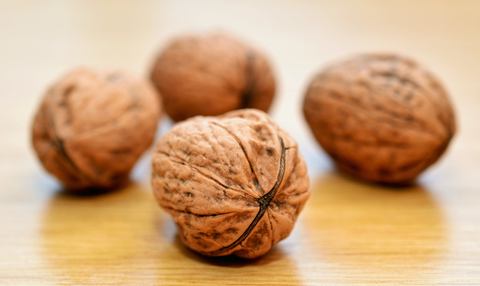
https://www.pexels.com/photo/brown-nuts-on-table-45211/
Walnuts are the only tree nut that is an excellent source of Omega-3 ALA, a single serving of walnuts (1 ounce or 30g) contain 2.5g of ALA, a whopping 156% of a woman’s recommended daily intake. (14)
An animal study found that walnut intake could help improve your brain health. One found that they were associated with improvements in learning and memory. (15) Another study also found walnuts caused significant improvements in memory, learning, and motor development in mice with Alzheimer’s disease. (16)
Walnuts make a tasty snack on their own, but adding them to your morning granola, yoghurt, or cereal will be an easy way to increase your ALA intake.
Kidney Beans For Omega-3

https://pixabay.com/ro/photos/fasole-rinichi-morman-nimeni-nu-316592/
Kidney beans contain 0.10g of ALA per 88g (17), and though this sounds like a smaller amount compared to the above foods, kidney beans are one of the most common beans to include in a meal or side dish, so you probably eat more than you think.
They are also a great source of protein and are rich in various vitamins, minerals, fibres, and antioxidants. They also aid weight loss, promote colon health, and moderate your blood sugar levels. (18) (19) (20)
Add kidney beans to your curries, stews, soups, or salads for a boost of Omega-3 ALA.
Algae Oil For Omega-3

https://pixabay.com/ro/photos/verde-alg%C4%83-aproape-2631413/
Algae oil, a type of oil that is derived from algae in the sea, is one of the only plant-based sources of both DHA and EPA. (21) The algae is actually where the fish get their Omega-3 fatty acids from in the first place! They obtain it from eating krill who have eaten a special species of micro-algae that has evolved to create their own DHA and EPA.
Some studies have found that algae oil is comparable in seafood with its nutritional availability of DHA and EPA, with one study comparing capsules to cooked salmon, finding both were very well tolerated and equivalent in terms of absorption. (22) One study even found algae oil was better than krill at raising EPA levels.
How Much Omega-3 Do You Need?
The recommended amount of Omega-3s differs by each study, but the general recommendation is that adult men should take 1.6 grams/day and adult women should take 1.1 grams/day. (24)
It is thought vegans should consume an additional 200-300mg of DHA per day. (25) This is best done through an algae-based Omega-3 fatty acid supplement.
How Common Is Omega-3 Deficiency?
Studies have shown that a Omega-3 fatty acids deficiency is common (23), but a true deficiency is quite rare, although low levels of this polyunsaturated fatty acid can still cause a host of issues.
You can help reduce your chance of an Omega-3 fatty acids deficiency by making sure you get enough fatty acids from your dietary intake or through Omega-3 supplements.
How Long Does It Take To Correct Omega-3 Deficiency?
Your levels of Omega-3 fatty acids will build up quickly in the body, though it may take from 6 weeks to 6 months to see a significant improvement in mood, pain, or other symptoms. Getting enough of Omega-3 and Omega-6 in the right levels will also be important. (26)
How To Get Vegan Omega-3?
Although there is a range of vegan foods high in Omega-3 ALA, for the complete range of Omega-3s the best option for those on a plant-based diet is an algae oil supplement.
Do Vegans Need To Take Omega-3 Supplements?
Most places recommend fish oil for Omega-3s, but the fish don’t make the Omega-3 fatty acids themselves. Instead, they obtain it from eating krill who have eaten a special species of micro-algae that has evolved to create their own DHA and EPA.
We believe that taking a micro-algae supplement rather than eating fish oils is the best way to up your Omega-3 levels. By going straight to the source the fish use, we can create a healthy, plant-based Omega-3 fatty acids supplement with minimal environmental impact.
Protect your future health by getting your Omega 3 - straight from the source. If you’re looking to begin taking an Omega-3 supplement, then check out Omvits, a 100% plant-based, ocean-friendly, and sustainable multivitamin and mineral creator.
(1) https://pubmed.ncbi.nlm.nih.gov/25339684/
(2) https://www.ncbi.nlm.nih.gov/pmc/articles/PMC5705809/
(3) https://www.ncbi.nlm.nih.gov/pmc/articles/PMC4152533/
(5) https://ods.od.nih.gov/factsheets/Omega3FattyAcids-HealthProfessional/#:~:text=In%20adults%20aged%2020%20and,in%20adults)%20%5B39%5D.
(6) https://pubmed.ncbi.nlm.nih.gov/22305169/
(7) https://pubmed.ncbi.nlm.nih.gov/24126178/
(9) https://pubmed.ncbi.nlm.nih.gov/17356263/
(10) https://pubmed.ncbi.nlm.nih.gov/22090467/
(11) https://www.ncbi.nlm.nih.gov/pmc/articles/PMC2868018/
(12) https://pubmed.ncbi.nlm.nih.gov/18418423/
(13) https://pubmed.ncbi.nlm.nih.gov/17122327/
(15) https://pubmed.ncbi.nlm.nih.gov/22048906/
(16) https://pubmed.ncbi.nlm.nih.gov/25024344/
(17) https://ods.od.nih.gov/factsheets/Omega3FattyAcids-HealthProfessional/
(18) https://pubmed.ncbi.nlm.nih.gov/23089999/
(19) https://pubmed.ncbi.nlm.nih.gov/12498630/
(20) https://pubmed.ncbi.nlm.nih.gov/23089999/
(21) https://www.ncbi.nlm.nih.gov/pmc/articles/PMC3736422/
(22) https://pubmed.ncbi.nlm.nih.gov/18589030/
Leave a comment
Comments will be approved before showing up.
Also in The Omvits Blog

The Power of Running: How a 200 Mile Run to Wales Became a Meaningful Journey for a Great Cause
May 03, 2023 3 min read
We interviewed Andrew Thomas, who was preparing for a 200-mile marathon from London to Wales to raise funds for Maggie's Cancer. Read the article to know more about his adventure!
Subscribe
Sign up to get the latest on sales, new releases and more …
Recent Articles
-
The Power of Running: How a 200 Mile Run to Wales Became a Meaningful Journey for a Great Cause
May 03, 2023
-
Sneaky Ingredients To Watch Out For If You're Vegan
January 11, 2022
-
How To Do Veganuary If You’re On A Super Tight Budget
January 11, 2022
-
How To Satisfy Meat & Fish Cravings During Veganuary
January 11, 2022
-
Common Pitfalls Of Veganuary And How To Avoid Them
January 11, 2022
-
Simple Nutrition Advice For Veganuary And Beyond
January 11, 2022
-
Best Vegan Meat Alternatives To Try This Veganuary
January 11, 2022
-
5 Ocean Friendly Clothing Brands To Check Out This Month
June 21, 2021
-
12 Incredible Ocean Conservationists To Support This June
June 16, 2021
-
How To Do Something For World Ocean Day If You Can't Get To A Beach
June 08, 2021

